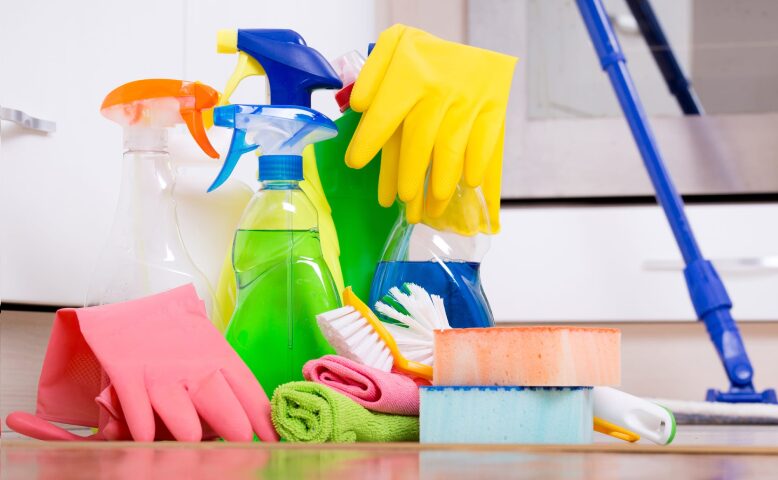Walking down the cleaning aisle of any store can feel like an overwhelming experience. Rows upon rows of brightly colored bottles promise to clean, sanitize, and refresh every nook and cranny of your home. But do you really need all of them? The answer is a resounding no.
In this post, we’ll cut through the clutter and reveal the house cleaning products you can skip—and what you should use instead. You’ll save money, space, and maybe even a few brain cells in the process. In fact, if you’re looking for a safe and all-purpose cleaner, check out allzweckreiniger.
1. Glass Cleaner
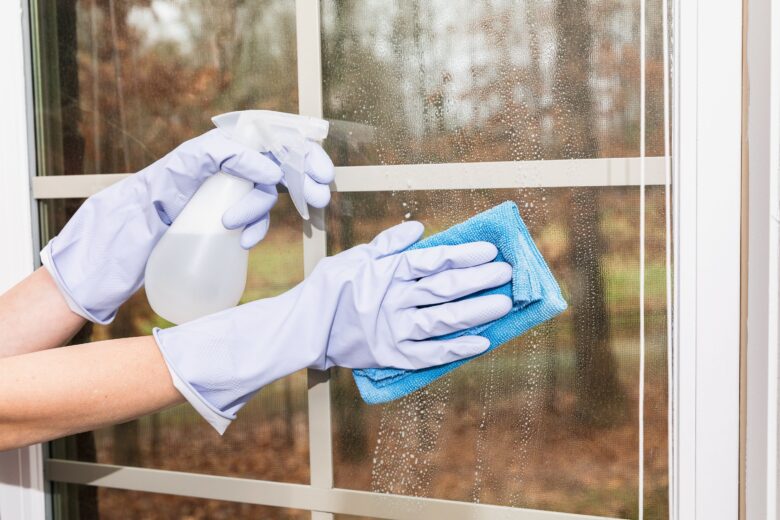
Glass cleaners are marketed as the perfect solution for streak-free windows, mirrors, and other glass surfaces. However, most glass cleaners contain ammonia and other harsh chemicals that can irritate your skin and respiratory system. Plus, they’re often overpriced.
What to Use Instead:
You can create your own effective glass cleaner at home using just two ingredients: vinegar and water. Mix equal parts of white vinegar and water in a spray bottle, and you’ve got a solution that cuts through grime, leaves glass sparkling, and is much safer for you and the environment. If the vinegar smell isn’t your favorite, a few drops of essential oil will mask it nicely.
For those with glass surfaces in their kitchens, like splashbacks, keeping them spotless is simple with this natural solution. Unlike commercial sprays that can leave streaks or residue, a quick wipe with vinegar and water ensures a streak-free shine. If you’re looking to upgrade your space with stylish and durable glass splashbacks, Direct Splashbacks offers a variety of clear, colored, and printed options that enhance both function and aesthetics.
2. Stainless Steel Cleaner
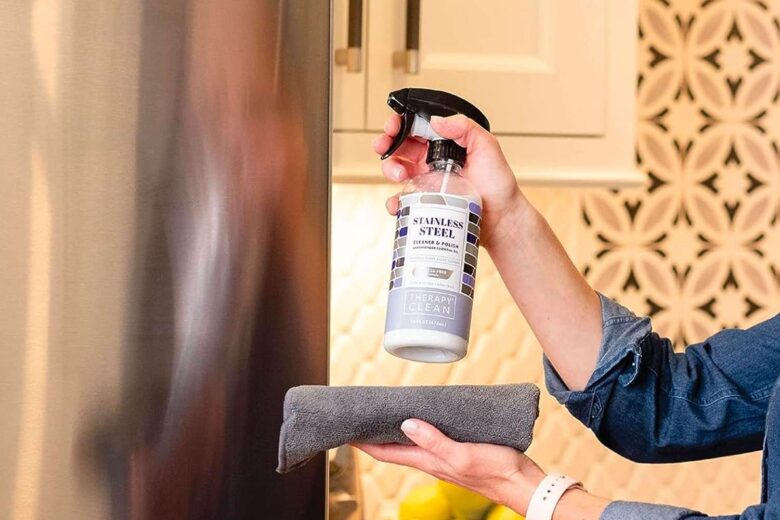
Stainless steel cleaners often contain harsh chemicals that aren’t necessary to achieve a polished look. They also tend to leave behind residue that attracts more fingerprints and smudges, making you clean more often than you should.
What to Use Instead:
A simple microfiber cloth dampened with water will usually do the trick for most stainless steel surfaces. For tougher spots, a bit of dish soap mixed with warm water is effective. Want that extra shine? Try rubbing a small amount of olive oil onto the surface with a soft cloth, and you’ll have gleaming stainless steel without the use of specialized cleaners.
3. Oven Cleaner
Oven cleaners are notoriously caustic, containing chemicals that can cause skin burns and respiratory problems. Plus, they often leave behind an unpleasant chemical smell that can linger for days.
What to Use Instead:
Baking soda and water make an excellent natural paste for cleaning ovens. Spread the paste inside your oven, let it sit for a few hours (or overnight for tougher grime), and then scrub it away with a damp sponge. For an extra boost, spray some vinegar over the baking soda paste before scrubbing—it will fizz up, making it easier to remove stuck-on food and grease.
4. Multi-Surface Cleaner
Multi-surface cleaners are designed to tackle everything from countertops to floors, but they often contain a mix of chemicals that are unnecessary for everyday cleaning tasks. They also tend to be more expensive than single-purpose cleaners.
What to Use Instead:
A simple all-purpose cleaner made from water, vinegar, and a few drops of dish soap can clean most surfaces in your home just as effectively. For a bit more versatility, consider using a product like an allzweckreiniger, which is a German-style all-purpose cleaner known for its gentle yet effective cleaning power. It’s safe for a variety of surfaces and is a more environmentally friendly option than many chemical-laden multi-surface cleaners.
5. Fabric Freshener Sprays
Fabric fresheners are often loaded with synthetic fragrances and chemicals that can cause allergic reactions and irritate sensitive skin. These products do little more than mask odors rather than eliminating them.
What to Use Instead:
To freshen fabrics naturally, try sprinkling baking soda over your carpets, upholstery, or mattresses. Let it sit for 15-30 minutes before vacuuming it up. Baking soda absorbs odors, leaving your fabrics smelling clean. You can also make a DIY fabric spray by mixing water, a splash of vodka (it helps to kill bacteria), and a few drops of your favorite essential oil.
6. Floor Cleaner
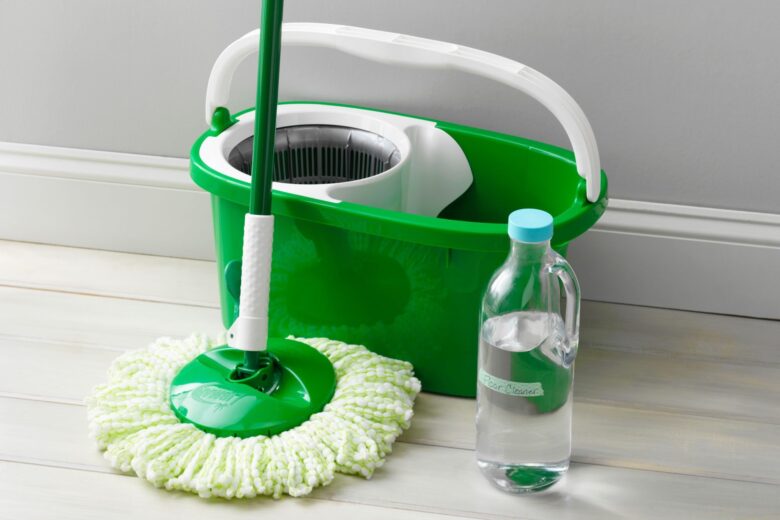
Commercial floor cleaners are often marketed for specific floor types—hardwood, tile, laminate, etc.—making you feel like you need a separate cleaner for each. These products are often more about marketing than necessity.
What to Use Instead:
Most floors can be cleaned with a simple mixture of water and a few drops of dish soap. For hardwood floors, add a splash of vinegar to the mix. Be sure not to oversaturate the floor, especially wood, to avoid water damage. You can also use an allzweckreiniger for an even more streamlined cleaning routine, as it’s safe for most floor types.
7. Air Fresheners
Air fresheners are notorious for containing synthetic fragrances and chemicals that can be harmful when inhaled over time. They don’t actually clean the air; they just mask odors.
What to Use Instead:
To naturally freshen the air in your home, try simmering a pot of water with citrus peels, cinnamon sticks, and cloves on the stove. You can also place bowls of vinegar or baking soda around the house to absorb unpleasant smells. If you like a bit of scent, consider using an essential oil diffuser for a natural and safer alternative.
8. Disinfecting Wipes
Disinfecting wipes have become incredibly popular, especially for quick clean-ups. However, they are often overused and contribute to a significant amount of waste. They also contain chemicals that can be harsh on the skin.
What to Use Instead:
For everyday cleaning, a microfiber cloth dampened with water and a bit of dish soap works just as well. Microfiber cloths are designed to trap bacteria, and they can be washed and reused multiple times. For disinfecting, consider using a solution of water and rubbing alcohol or hydrogen peroxide.
9. Toilet Bowl Cleaner
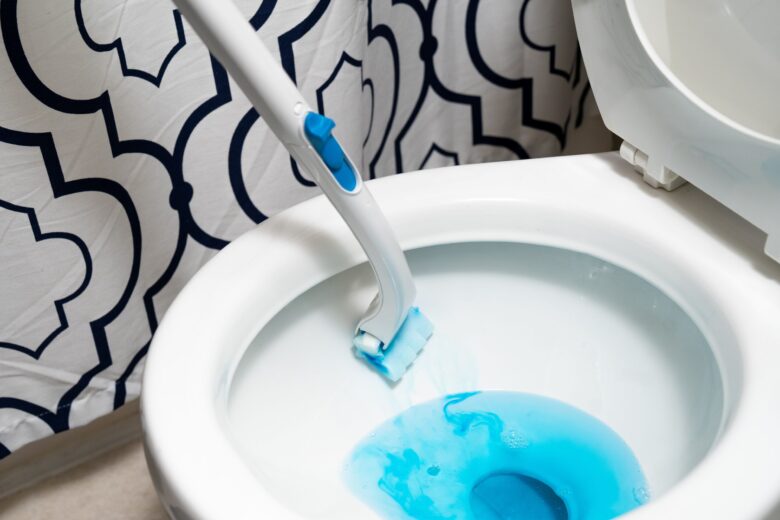
Toilet bowl cleaners are packed with harsh chemicals that can be dangerous to both humans and pets. They’re also expensive for what they do.
What to Use Instead:
A simple mixture of baking soda and vinegar works wonders on toilet stains. Pour about a cup of baking soda into the toilet bowl, followed by a cup of vinegar. Let it sit for 10-15 minutes, then scrub with a toilet brush. The fizzing action helps to lift stains and leaves the bowl clean without the need for toxic chemicals.
10. Furniture Polish
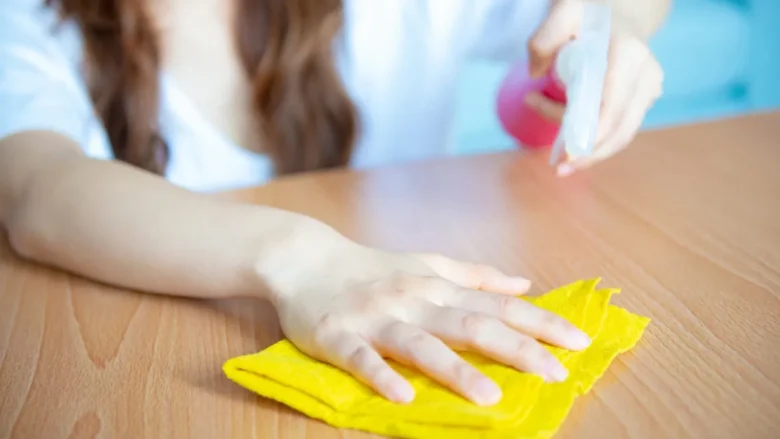
Furniture polish is often more about giving wood surfaces a temporary shine rather than nourishing or protecting the wood. Many commercial polishes also contain synthetic fragrances and chemicals.
What to Use Instead:
To polish and protect wood furniture, try making your own polish with olive oil and lemon juice. Mix three parts olive oil to one part lemon juice and apply it to wood surfaces with a soft cloth. This natural polish not only adds shine but also nourishes the wood.
Conclusion
Simplifying your cleaning routine not only makes it more efficient but also safer for you, your family, and the environment. By ditching unnecessary products and opting for more versatile, natural alternatives, you can achieve a clean home without the clutter and chemicals.

